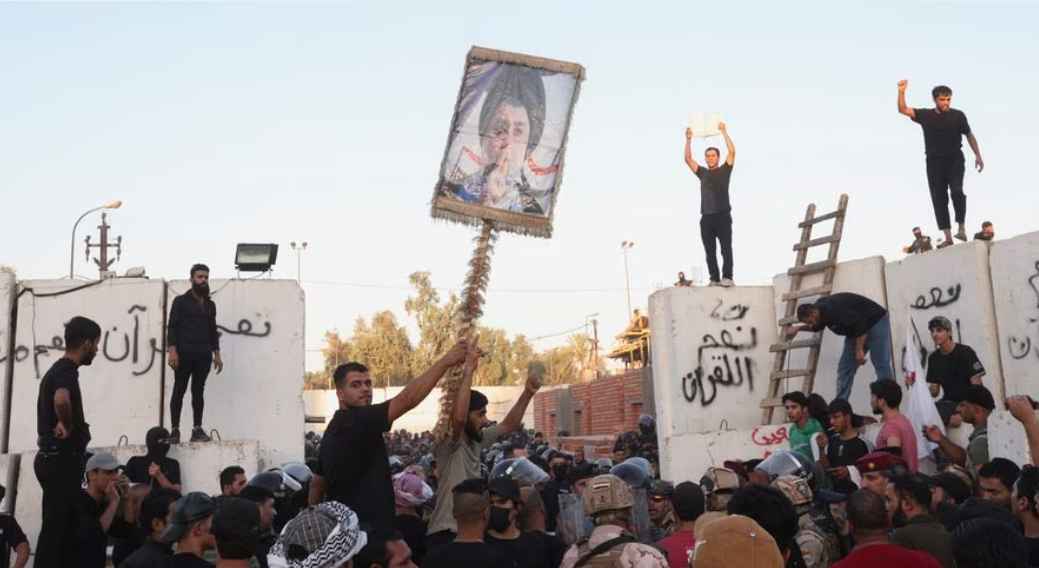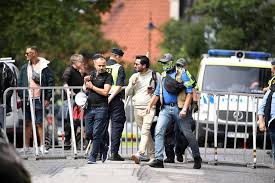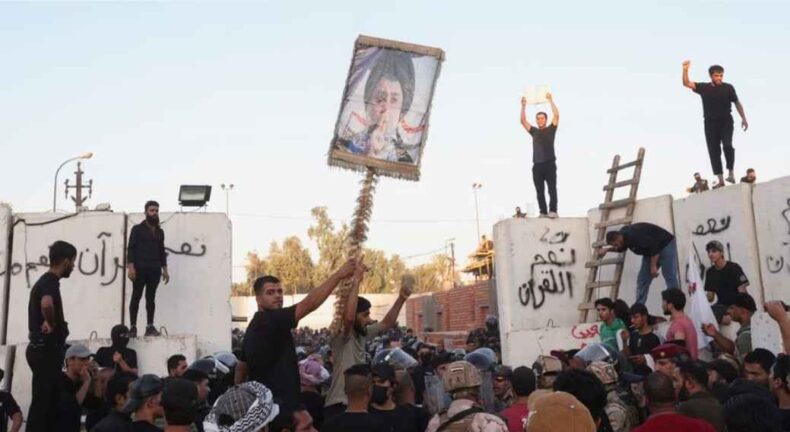In the latest development in the recent Sweden Quran burnings, Iraq has threatened to sever all diplomatic ties with Sweden if such an incident happens again. On Thursday, an anti-Quran demonstrator-an Iraqi residing in Sweden- stepped on and kicked the Holy Book and the flag of Iraq in Stockholm. After the event, Iraq expelled the Swedish ambassador in Baghdad.
Iraq’s reaction to the open disrespect for Islam’s holy book is unsurprising. Anti-Islam activism in Sweden has also sparked anger in several other Muslim states.

Source: Reuters
What does Swedish law say about the Quran burnings?
No law in Sweden specifically prohibits the burning or desecration of any religious text, including the Quran. The country does not have any anti-blasphemy laws like many other Western states.
Since the public burnings of the Quran started, many Muslim countries have raised the same issue: why doesn’t the government stop the protesters? However, the power to authorise or stop protests lies not with the Swedish government but with the police.
Freedom of speech or hate speech?
Like any other Western liberal democracy, Sweden fervently protects the freedom of speech under its constitution. Specific grounds, such as risk to public safety, to deny a permit for a demonstration have to be cited by the police.
In February, Stockholm police denied two applications for Quran-burning protests on the grounds that the acts could increase the risk of terror attacks against the country. However, a court overturned this decision, asking the police to give more concrete reasons for disallowing the protest.
Sweden’s hate speech law prohibits incitement against people based on race, religion, ethnicity, sexual orientation, or gender identity. Several, therefore, believe that burning the Quran should be considered hate speech. Others hold that burning the Quran does not target individual practitioners of faith but the organised religion of Islam.
What steps have been taken amidst outrage?
Swedish police have filed preliminary hate crime charges against the man who burned the Quran outside a Stockholm mosque in June. Sweden’s justice minister Gunnar Stommer also stated a few days ago that the government is considering amending the law to prevent such events in the future. He also said that the recent incidents have made Sweden a target for militant violence.

In a test to understand whether the Swedish authorities were singling out Muslims and Islam, a Muslim man applied for permission to stage a protest outside the Israeli embassy in which he said he would burn the Torah and the Bible. The Israeli government and Jewish groups condemned this; however, the police approved the man’s request. The man eventually did not carry out his plans, saying that such acts were against his principles as a Muslim.
How do other countries deal with blasphemy?
Blasphemy is any speech or action that shows contempt for God or sacred objects. It is criminalized in 79 countries, as a Pew Research analysis found.
At least seven countries (Afghanistan, Brunei, Iran, Mauritania, Nigeria, Pakistan, and Saudi Arabia) can give capital punishment for blasphemy. In Iraq, blasphemy is punishable by up to three years in prison.
Following Iraq’s expulsion of Sweden’s ambassador, various other countries have summoned their Swedish ambassadors. Qatar and Saudi Arabia have handed notes of protest to their Swedish ambassadors. Turkiye also condemned the “despicable attack” and asked Sweden to “take decisive measures to prevent this hate crime.” Other Muslim countries have shown similar reactions. Iran’s Foreign Minister, Hossein Amirabdollah, has written a letter to the UN secretary-general condemning the incident.












